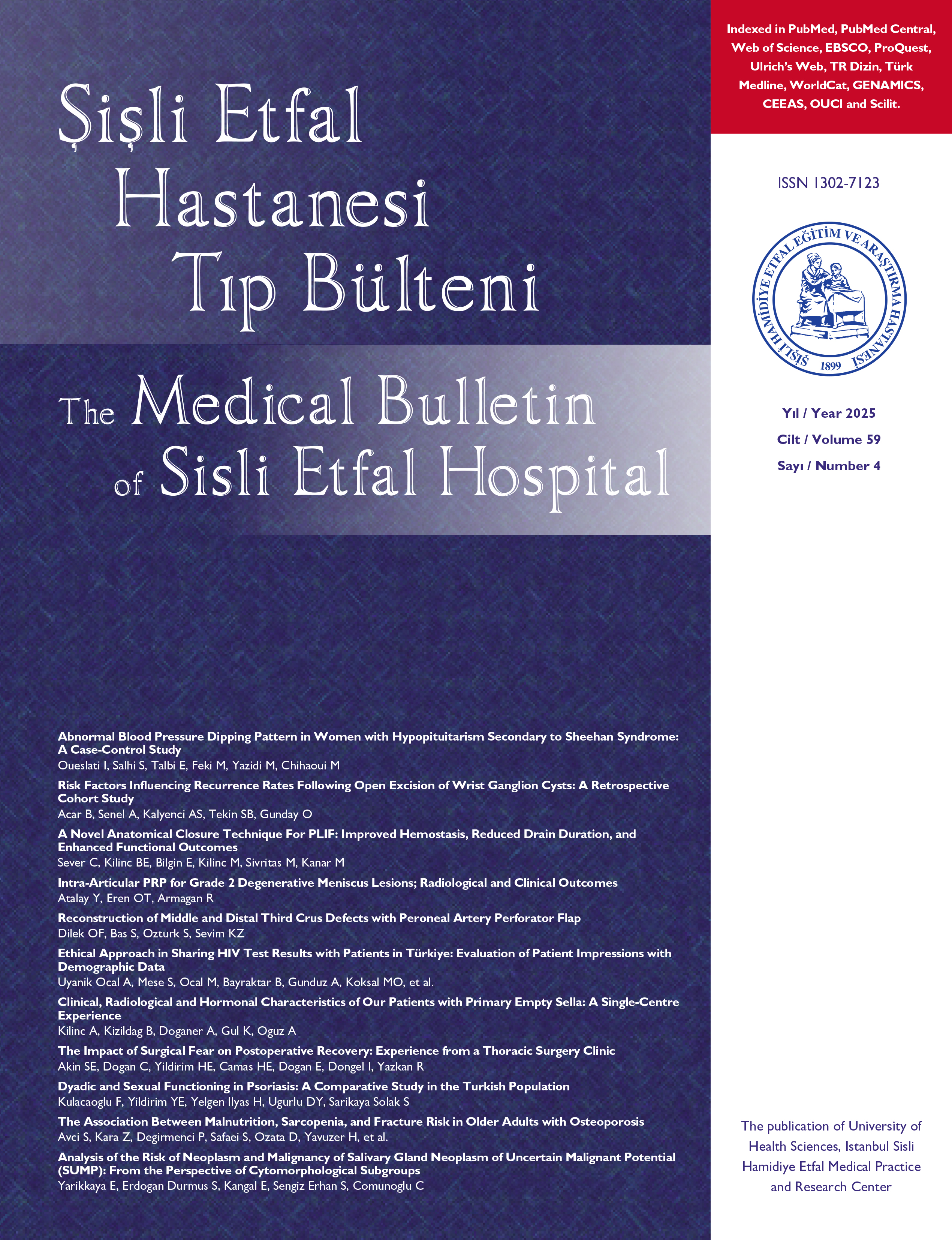
The Impact of Surgical Fear on Postoperative Recovery: Experience from a Thoracic Surgery Clinic
Suleyman Emre Akin1, Cem Dogan1, Hasan Emre Yildirim1, Hasan Ekrem Camas1, Edanur Dogan2, İsa Dongel1, Rasih Yazkan11Department of Thoracic Surgery, Faculty of Medicine, Süleyman Demirel University, Isparta, Türkiye2Isparta Public Health Center affiliated with the Isparta Provincial Health Directorate of the Ministry of Health of the Republic of Türkiye
Objectives: Surgical intervention is often an inevitable process in individuals lives and constitutes a significant source of stress not only physically but also psychologically. The fear and anxiety associated with surgery typically begin in the preoperative period, extend through the intraoperative phase, and may persist even after discharge. This situation directly affects patients adaptation to the surgical process and the speed of postoperative recovery, thereby significantly influencing both individuals quality of life and the overall effectiveness of healthcare services.
Methods: This cross-sectional and analytical study was conducted with 100 patients aged 18 years and older who had no communication problems and underwent elective surgery in the department of thoracic surgery. Participants completed a questionnaire consisting of a sociodemographic data form, the Surgical Fear Questionnaire (SFQ), and the Post-Discharge Recovery Scale (PDRS). Descriptive statistics were presented using frequencies, means, standard deviations, and minimum and maximum values. For vari-ables with normal distribution, the independent samples t-test and Pearson correlation test were used for analysis. A p-value of <0.05 was considered statistically significant.
Results: Among the participants, 73.0% were male, 50.0% were primary school graduates, and 76.0% were married. The mean post-discharge recovery score of the study group was 55.4±14.5. Participants who were married, had no chronic illness, had a spouse as a caregiver, had two or fewer previous hospitalizations, and had undergone one or fewer previous surgeries had significantly higher post-discharge recovery scores (p=0.033, p=0.047, p=0.033, p=0.045, and p=0.008, respectively). Post-discharge recovery was moderately and negatively correlated with surgical fear (r=-0.400, p=0.034).
Conclusion: In this study, the relationship between preoperative surgical fear levels and post-discharge recovery was evaluated, and a significant negative correlation was identified. The findings are consistent with previously reported results in the literature, supporting the notion that surgical fear may adversely affect the recovery process through both physiological and psychological mechanisms. According to the study results, patients who were married and received postoperative care from their spouses had higher levels of recovery. This suggests that social supportparticularly spousal supportserves as an important protective fac-tor during the surgical process. Additionally, individuals with chronic illnesses were found to have significantly lower levels of post-discharge recovery. This may be explained by the physiological burden of chronic diseases, their impact on the immune system, and challenges in treatment adherence. In summary, the study highlights that reducing surgical fear, strengthening social support systems, and improving chronic disease management may contribute positively to the postoperative recovery process.
Keywords: Postoperative outcomes, recovery, surgical fear, thoracic surgery
Makale Dili: İngilizce



















